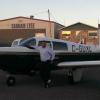Looking for a graphical excel based W&B sheet for my mooney
-
Members Online
- Slick Nick
- wombat
- McMooney
- EricJ
- HolyMicro
- dkkim73
- Marc B
- CChris
- lamont337
- LANCECASPER
- M20Kid
- Mikey30V
- georger
- 47U
- crustymuffin
- Glen S.
- jamesyql
- MikeOH
- ericrynehess
- KLRDMD
- bhtitle
- Red Leader
- Andy95W
- affricate
- eman1200
- ArtVandelay
- toto
- Dwb62
- Hank
- larryb
- bigmo
- Crawfish
- ElkoRandy20J
- N201MKTurbo
- johnbkeck
- AndreiC
- Schllc
- 201Steve
- Mcstealth
- 201er


Recommended Posts
Join the conversation
You can post now and register later. If you have an account, sign in now to post with your account.